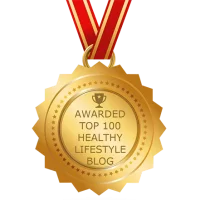At the end of 2015, Google revealed that ‘how to get rid of stress’ was one the most common searched terms, which suggests that reducing stress is a common goal for many of us. In today’s world, we’re more stressed out and burned out than ever before yet the world is not about to slow down any time soon, so how can we need to learn how to cope with the pressures of modern life.
Our bodies are designed to respond to short burst of stress, but chronic high stress, and how that stress is perceived, can be detrimental to your overall health.
Stress is frequently referred to as “the silent killer,” it has been associated with the top six causes of death. According to the American Psychological Association, two out of three visits to primary care physicians are for health issues where stress plays a significant role.
When we feel stressed, our bloodstream gets a massive hit of adrenaline, cortisol and other stimulatory chemicals. Heart rate increases and blood sugar metabolism changes to prepare our body with the energy required for ‘flight-or-fight’ response.
Your stress response system includes the hypothalamic-pituitary-adrenal (HPA) axis and the sympathetic nervous system (SNS). The HPA-axis and SNS regulate your body flight-or-fight response, which is important for producing an immediate response to danger, such as rescuing a child from a dangerous situation. The result of HPA and SNS activation is a heightened sense of awareness, which causes an accelerated heart rate and rapid breathing. These normal responses help you quickly and appropriately respond to potential threats.
A key component of the HPA axis includes the adrenal glands, the small glandular tissues lying above of each kidney. The adrenal glands are an extension of the SNS and are responsible for regulating the body’s strength and stamina and are the central glands that release hormones and chemicals in response to stress. The two key hormones involved in regulating stress include cortisol and dehydroepiandrosterone (DHEA). The adrenal glands also secrete the fight-or-flight chemicals, epinephrine (adrenaline) and norepinephrine.
The short-term release of cortisol and adrenaline into the bloodstream prepares the body for an essential and quick response to potential danger. Chronic stress and stimulation causes a continuous release of cortisol and adrenaline into the bloodstream which can be damaging to the body. This may cause your adrenal glands to stop working properly an also lead to a whole host of health issues such as inflammation, chronic disease and heart issues, weight gain, insomnia, and much more.
Four Key Stressors of the Human Body
When most people think about “stress” they usually limit their definition to mental and emotional stressors. Going through a divorce or changing jobs can definitely send your stress levels soaring. However, blood sugar imbalances, inflammation and inadequate sleep are also potent stimulators of cortisol production causing stress on the body. For example, you may have a low level of anxiety in your life, or you may be getting enough sleep each night, but if you are consuming a diet high in sugar and processed foods, your cortisol and insulin levels will be on a continuous roller coaster causing stress on the body. On the other, someone may be consuming a balanced diet, with low levels of anxiety, but may have a high degree of inflammation in his or her body, which signals the HPA axis to secrete cortisol needed to reduce the inflammation.
The top four key stressors of the human body include:
- Blood Sugar Imbalances
- Mental and Emotional Stress
- Insomnia
- Inflammation
We will further expand on each key stressor and address lifestyle and dietary recommendations, along with natural therapies to help you take control of your health. Stay tuned for weekly blogs, which will individually address each key stressor.
The specific “root cause” of stress may vary from individual to individual. The bottom line is, if the HPA axis is required to work over-time, cortisol and DHEA levels will eventually become imbalanced, along with other systems in your body.
Stress Recovery at Holistic Healing Heart Center
Dr. Cynthia and her team at the Holistic Healing Heart Center want to help you and your loved ones recover from stress. We want to help you better understand how stress affects your health on a daily basis; including why your body responds or fails to respond, to the stressful events in your life. We will focus on outlining recommendations for the four major factors that trigger a stress response in the body.
We will start by offering Stress Management group visits and implementing a Stress Recovery Program. For more information contact our office at 818-842-1410.





